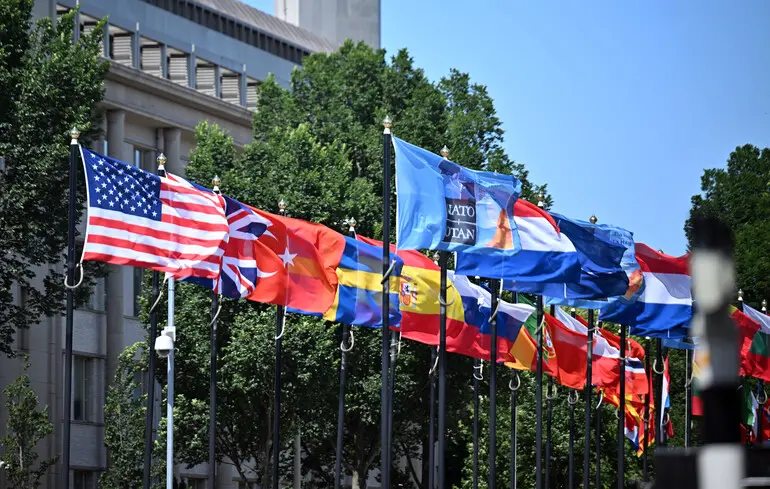Escalating Tensions: Internal NATO Disputes over Responses to Russian Air Provocations

The global security landscape is once again tense as NATO countries face growing disagreements over how to respond to Russian military aircraft violations in alliance member states’ airspace.
The current situation in the alliance is marked by increasing divergences among member countries regarding tactics to counter Kremlin provocations that increasingly threaten regional stability.
Recent days and even hours have seen a sharp rise in incidents involving Russian planes unlawfully crossing NATO borders.
Notably, last weekend, Estonia convened emergency NATO and UN Security Council meetings following the interception of three Russian fighter jets over the Gulf of Finland for 12 minutes.
Such incidents are not isolated — recent violations by drones in Poland and Romania, along with Russian aircraft incursions, highlight the growing tensions that demand firm control.
This context raises pressing questions: does NATO have a clear, unified plan of action? Some allies advocate for stronger measures and display of force to deter Russia, while others urge caution to prevent escalation.
Germany, in particular, emphasizes restraint, arguing that reckless military actions could worsen the situation; rather, calm-headed responses are seen as responsible and essential for peace.
Conversely, Central and Eastern European NATO members such as Latvia and Poland call for decisive demonstrations of strength and even military action if necessary in response to serious threats.
The tension manifests in political statements and military maneuvers.
During the UN General Assembly in New York, U.S.
President Donald Trump expressed support for measures to destroy Russian aircraft that violate airspace — though he refrained from committing to specific actions in case of escalation.
Ongoing debates concern whether to shoot down Russian planes or opt for restraint to avoid aggravating conflict.
These issues arise amid external challenges posed by Russia’s aggressive policies.
While the U.S.
and several partners favor more assertive responses, Germany and others continue to urge prudence.
The overarching goal remains maintaining the balance through diplomacy, avoiding open conflict, and preserving NATO unity amidst Kremlin provocations.

